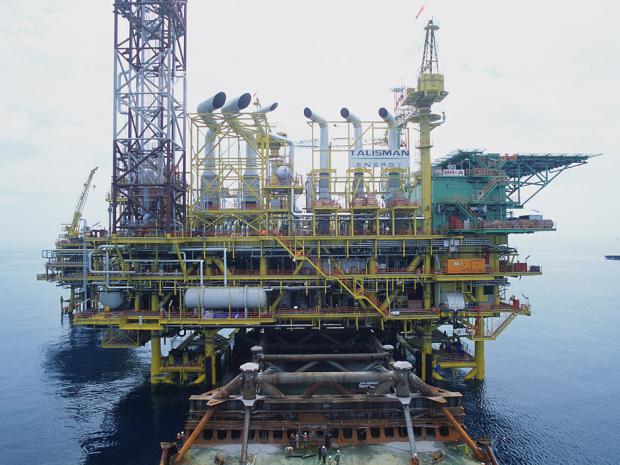
REPSOL & TALISMAN: $8 BLN

Repsol, the Spanish oil group, is aiming to acquire Talisman Energy of Canada, in a deal that would value the target's equity at up to $8bn.
The deal, if agreed, would be the first large transaction involving oil production companies since the crude price started falling last June. Weaker oil prices are expected to encourage a wave of merger and acquisition activity across the energy sector as companies come under financial strain and seek buyers.
Senior Repsol executives are in Calgary for talks, and hope to have a deal agreed before Christmas, according to one person involved in the negotiations.
The price being negotiated is in a range between $6 and $8 per share, which would represent a premium of up to 117 per cent to Talisman's share price of $3.69 (C$4.26) on Thursday night. Including debt, the deal would give Talisman an enterprise value of about $10bn to $12bn.
Talisman confirmed on Monday that it had been "approached by a number of parties, including Repsol, with regards to various transactions". It added then: "There is no assurance that any transaction will be agreed."
Talisman on Friday repeated its statement of Monday but declined to comment further. Repsol also declined to comment.
Repsol was first in talks with Talisman about a possible deal over the summer, but decided to pull out because the price for the company would have been too high. Over the past six months, Talisman shares have fallen 62 per cent.
Repsol has about $10bn in cash and short-term instruments available to make acquisitions following the payment of about $5bn in compensation from the government of Argentina over the nationalisation of YPF, the Spanish company's business in the South American country.
Repsol has said it wants to build up its presence in developed countries that are members of the Organisation for Economic Co-operation and Development, rather than exposing itself further to the higher political risks typical of emerging economies.
About half of Talisman's assets are in the Americas, including the Eagle Ford and Marcellus shale formations in the US, with another 40 per cent in Asia.
Repsol is keen to acquire more assets in the US and Canada, and is also interested in making its first moves into Asia.
Talisman also own assets in the North Sea that are mature and will incur decommissioning costs at the end of their productive lives, which analysts have suggested are unattractive, particularly in a period of lower oil prices.
However, Repsol is interested in acquiring the expertise in offshore production of Talisman's workforce.
The Spanish company has had success in offshore exploration, for example in Brazil, but has less of a record in managing production after oil and gasfields have been found.
ft.com

